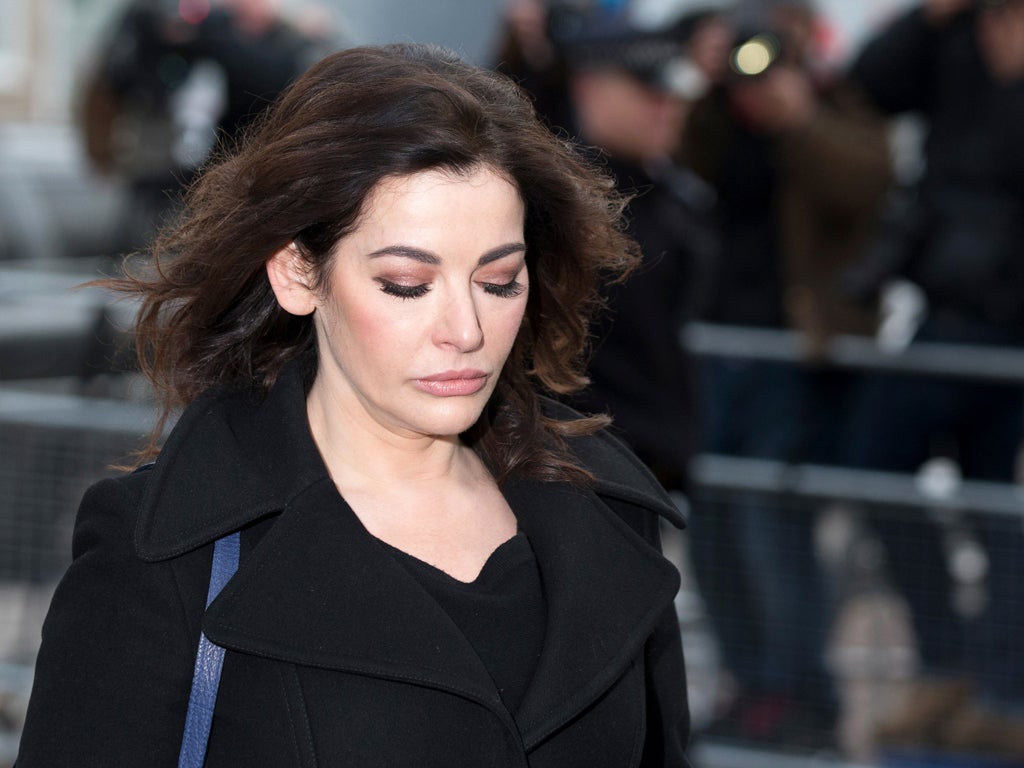Nigella, Benefits Street, and drugs charges: evidence of class war, or a system that protects the vulnerable?
On the surface it might seem unjust. But there's so much more to consider


Your support helps us to tell the story
From reproductive rights to climate change to Big Tech, The Independent is on the ground when the story is developing. Whether it's investigating the financials of Elon Musk's pro-Trump PAC or producing our latest documentary, 'The A Word', which shines a light on the American women fighting for reproductive rights, we know how important it is to parse out the facts from the messaging.
At such a critical moment in US history, we need reporters on the ground. Your donation allows us to keep sending journalists to speak to both sides of the story.
The Independent is trusted by Americans across the entire political spectrum. And unlike many other quality news outlets, we choose not to lock Americans out of our reporting and analysis with paywalls. We believe quality journalism should be available to everyone, paid for by those who can afford it.
Your support makes all the difference.There’s unfortunate timing, and then there’s hapless tale of Nigella and Benefits Street.
On the one hand, we have news that the troubled TV chef will not face police action after admitting to taking a Class A drug in front of a jury.
On the other, the story that five cast members from the Channel 4 poverty porn docu-soap, including Samora ‘Black Dee’ Roberts, are set to appear in front of Birmingham Magistrates Court on 6 February charged with separate drug-related offenses – and, in the case of ‘Black Dee’ and Tina Thomas, an extra charge for allegedly possessing ammunition without a certificate.
On the surface (and minus the ammunition charges) it seems unjust to the extreme. Another story of the system sympathizing with the Teflon rich whilst stubbing one out in the face of the poor; of the wholesome and well-fed triumphing over the uncouth and malnourished; of the woman the nation will “always love” getting away with it while the unpaid, uncared for and under-represented citizens of James Turner Street are accused of having dared to escape their own “intimate terrorism” for a fleeting moment.
And it would be easy to argue so. Except for two vital points.
One, that the charges levied against the five Benefits Street residents are vastly different from the investigation that followed Nigella’s confession, the latter of which was concluded without charge. The legal variation between occasional drug use, as in Nigella’s case, and alleged conspiracy to supply, in the case of Roberts, 32, Thomas, 46, Marvin Scott, 37, Ian Wright, 38, and Monique Walker, 28, is expansive, as is the severity of punishment each charge carries if the accused are found to be guilty by a jury.
The other is the matter of public interest. It would be hard for West Midlands Police to ignore “concerns raised by the local community” when vulnerable people have been broadcast in apparently dubious situations on national television on a weekly basis.
But it’s equally hard for Scotland Yard to ignore the fact that for every Nigella Lawson struggling through a “mortifying” court ordeal during her fraud case against her former PAs, there are also a thousand ‘Woman A’s who might be forced to make similar confessions, or risk lying to the police, the court and potentially even perverting the course of justice as a result.
“There are serious public interest concerns about the message any prosecution would send out to potential witnesses and victims in the future,” Scotland Yard said in a statement regarding the Crown Prosecution Service’s decision not to charge Nigella.
”Whilst witnesses clearly cannot simply admit to any offence under oath without consequences, this has to be balanced with the requirement for victims and witnesses to tell the truth.
“Further police activity may deter victims from being candid with police and in court for fear of future investigation.”
And among these ‘victims’ are the seemingly faceless, nameless sufferers of sexual assault and domestic abuse who, through no fault of their own, often feel like they are the ones on trial, forced to prove that they are telling the truth, that they are of sane mind, and that they have no motives to imply otherwise.
Lump a potential drugs charge on top of an honest admission of excessive intoxication, for example, and you could put potential witnesses off of coming forward altogether. The whole anonymous process is hard enough, without making it tougher by hauling a famous person who did a few lines on a few occasions back in front of a court for a dramatic and costly public showdown. Which, sadly, looks set to be exactly what we are going to get when the residents of Benefits Street are brought to trial. The irony, it seems, has come full circle.
Join our commenting forum
Join thought-provoking conversations, follow other Independent readers and see their replies
Comments